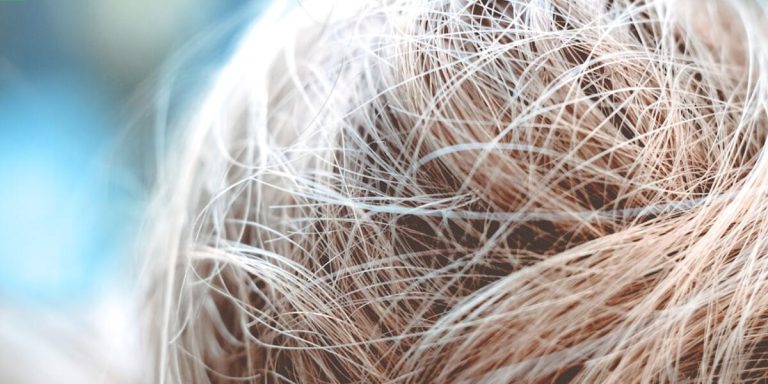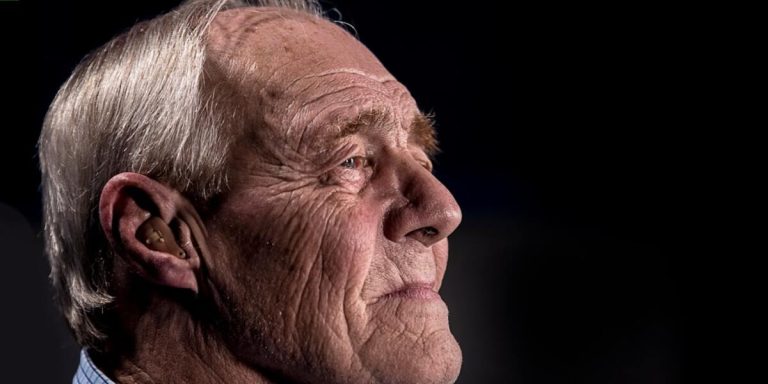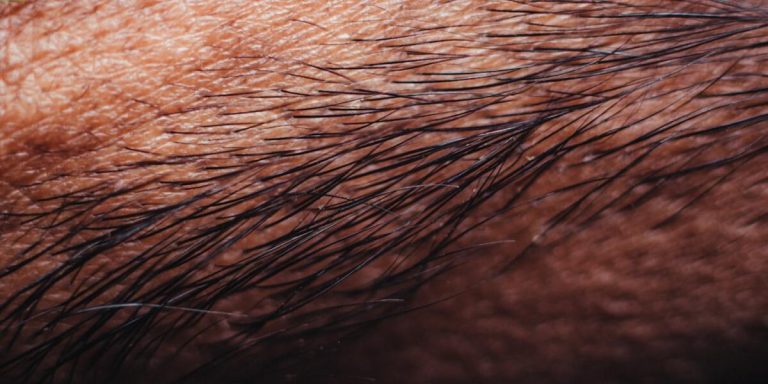Does Phentermine Cause Hair Loss? Unveiling Facts and Correlations
Hair loss can be a daunting issue and its causes are manifold. People often find themselves asking, “Does Phentermine cause hair loss?” while grappling with this challenging condition. As an appetite suppressant popularly used in weight reduction programs, it’s crucial to understand the role of Phentermine as potential hazard towards scalp health.
Phentermine’s correlation with hair loss is neither widely known nor unanimously accepted by all experts. However, what remains undeniable is that many users have reported incidents of thinning or shedding after their initiation on this drug regime. This raises questions about its safety profile concerning our tresses -ones we wish to address and debunk within this piece.
Did you know?
Little known fact: Phentermine, a popular weight loss drug, can indirectly lead to hair loss. This is primarily due to the stress that rapid weight reduction puts on your body and not because of the medicine itself.
Understanding the Connection: Phentermine and Hair Loss
In recent years, there has been an increased discussion around the drug Phentermine and its potential to cause hair loss. As one of the most widely prescribed weight-loss medications today, it’s unsurprising that many individuals have raised concerns about this reported side effect. By examining research literature and clinical studies on phentermine use in 2023, we can begin to understand why some people may experience hair shedding or thinning while using this medication.
Phentermine acts as a stimulant which influences your central nervous system to curb hunger pangs. But here’s where things get even more scientific: it also disrupts hormonal balance within your body. In essence, when you ingest phentermine, fluctuation occurs within certain hormones responsible for bodily functions – including growth cycle regulation of each strand on your scalp! This may echo through various parts of our bodies leading to several systematic changes – from mood swings or sleep disorders all way down towards affecting follicles resulting in premature hair fall out.
Investigating Phentermine’s Side Effects on Hair Health
Phentermine, a widely used prescription drug for weight loss, has been in the limelight because of its numerous side effects. One such potential concern that users have reported is hair loss. Many are left wondering “does phentermine cause hair loss?” Let’s delve deeper into this.
Firstly, it is essential to understand that there’s no direct evidence linking phentermine with hair shedding or thinning. However, several factors could indirectly lead to this unwanted outcome when consuming the medicine.
Stress on The Body: Phentermine acts as an appetite suppressant and increases metabolism rates significantly. This sudden change can put stress on your body causing Telogen Effluvium – a type of temporary but substantial hair fall due to shock or bodily stress.
Lack Of Nutrients: As you eat less while taking Phentermine, getting adequate nutrition becomes challenging if not properly managed by balanced diet planning which might leave your tresses malnourished and weakened leading them prone breakage and falling out.
Hormonal Imbalance: Rapid weight shifts may upset hormonal balances which are crucial for healthy follicle growth cycles resulting potentially in patchy balding or diffuse thinning pattern for both sexes.
It must be noted here though these impacts vary greatly among individuals based on their own unique biological responses along-with lifestyle habits like smoking/alcoholism/inactive routines can exaggerate negative outcomes further up-to certain degrees too..
Clinical Studies Linking Phentermine to Potential Alopecia
Studies have shown a credible link between the use of phentermine, a popular weight-loss medication, and alopecia or hair loss. Users report noticing increased shedding of hair after beginning their course of this medication. This leads to the crucial question – does Phentermine cause hair loss?
The first step in giving clarity to this concern is understanding what Phentermine actually does. It’s primarily prescribed as an appetite suppressant for those struggling with obesity. The drug functions by stimulate your central nervous system enhancing alertness or concentration while reducing feelings hunger.
However, like all medications – it comes with potential side effects which sometimes include changes experienced through one’s physical conditions such as skin and scalp health leading towards thinning and falling out of strands.
In specific studies conducted on patients taking phenteramine noticed mild-to-moderate instances related balding problems were observed compared versus general population statistics not under similar prescription drugs treatments.
Hormonal Imbalances and Prescription Medications as Culprits for Shedding Strands
Hormonal imbalances often play a pivotal role in hair loss, striking at the very root of our self-esteem. For example, an overactive or underactive thyroid gland can cause your hair to thin out gradually. However, what many don’t know is that certain prescription medications too contribute to this issue subtly but significantly.
One such drug commonly linked with potential hair health implications is Phentermine – prescribed widely for weight loss management across the globe. As it works by suppressing appetite and boosting energy expenditure through increased metabolism rate, its effects on hormonal balance are unavoidable which takes us back to how crucial hormone levels are for maintaining lustrous locks.
Studies have started surfacing where patients reported noticeable shedding after taking phentermine regularly for months — although there’s no concrete evidence directly correlating them yet considering various other factors might be involved as well like nutritional deficiencies resulting from restricted dieting while using phentermine. We need more research before drawing definitive conclusions; however, being aware never hurts when considering any medication course.
Exploring How Weight Loss Drugs Influence Hormone Levels
In the evolving world of medication and medical research, a commonly used drug in weight loss treatments is Phentermine. Does phentermine cause hair loss? The connection between this popular diet pill and hair shedding may not be directly clear but digging deep into its mode of operation might shed some light on it.
When you use Phentermine as part of a weight-loss treatment plan, it triggers hormonal imbalances that could affect normal hair cycle development resulting in thinning or falling out strands overtime.
It’s essential to note that this doesn’t happen overnight; instead becomes noticeable after several months when new hairs fail to grow back at their usual rate due to reduced follicle stimulation caused by these chemical changes within our system.
Additionally, people using prescription medications like phentermine should consider other factors contributing towards damaged locks such as stress induced from rapid body transformations and lack of nutrients if they’re following extremely low-calorie diets without proper supplementation.
While scientific studies are ongoing about whether does phentermine causes hair loss directly or not; anecdotal evidence suggests patients under long-term usage experience unusual shedding compared those who don’t take any kind medication during their journey towards slimness.
The Role of Stress and Body Changes While Taking Appetite Suppressants
The link between stress, body changes and appetite suppressants like phentermine is an intricate one. Many questions often arise around this topic, a common one being – “does phentermine cause hair loss?” Let’s unravel the mystery.
Stress is an infamous contributor to hair shedding. It wreaks havoc on our bodies in numerous ways, influencing everything from digestion to sleep quality to hormonal balance. Individuals under high levels of stress can find their hairs prematurely shifting from the growth phase into the resting phase before finally falling out.
Appetite suppressants such as Phentermine come into play here because they significantly change your body’s regular rhythm by controlling hunger pangs.
This abrupt modification can lead to increased anxiety or introduce fluctuations within your hormones since it alters how crucial neurotransmitters work inside our brains.
But what about its impact when it comes to losing strands? Although there may not be definitive scientific studies explicitly pointing towards answering ‘does Phentermine cause hair loss?’, anecdotal evidence suggests that some people experience thinning or shedding while using these weight-loss aids.
Nutritional Deficiencies Induced by Appetite Suppressants
Appetite suppressants, such as Phentermine, are widely used for weight loss. While they can be highly effective in curbing hunger and encouraging fat burn, it’s critical to consider the potential side effects – one being hair loss.
Phentermine works by inhibiting the central nervous system from sending hunger signals. Consequently, individuals using this drug may experience a significant decrease in their food intake levels. This sudden shift can lead to severe nutritional deficiencies if not properly managed with balanced diet or additional supplements.
The body requires specific vitamins and minerals to support healthy hair growth; these include iron, vitamin B-12, zinc and proteins among others. A deficiency of any of these essential nutrients might significantly hinder your body’s ability to produce new cells that form the structure of your hair follicles resulting in weaker strands prone to breaking or falling out prematurely.
It’s also worth noting that extreme calorie reduction induced by appetite suppressants like phentermine has been linked directly with telogen effluvium – a common form of temporary hair shedding caused by changes within your body – increasing stress hormones due depletion when necessary resources cannot meet its ongoing demands correctly.
Evaluating Dietary Intake Impact on Follicular Well-being During Phentermine Use
Phentermine, a popular appetite suppressant often prescribed to aid weight loss, has been associated with numerous side effects. Amid these potential concerns lies an inquiry that many users are searching for – “Does phentermine cause hair loss?” While direct evidence connecting Phentermine use and balding is not readily available or explicit, it stands crucial to comprehend how the drug and dietary changes induced by its usage could influence your follicular well-being.
When you start using Phentermine as part of your weight-loss regimen, significant reductions in calorie intake follow suit. This sudden change can be quite shocking for your system and may result in deficiency of essential nutrients necessary for maintaining healthy hair growth cycles.
Proteins play a starring role here. Depriving yourself of sufficient protein can lead to weaker strands prone to breakage–a formative step towards exacerbated hair thinning or even alopecia over time. Remember that foods rich in proteins like meat, fish, eggs should constitute a requisite part of any balanced diet aiming at averting malnourishment-related woes including but not limited to shedding tresses prematurely.
Apart from this vital macronutrient group; vitamins such as Vitamins A&B along with minerals zinc & iron also contribute significantly toward nurturing overall scalp health ensuring robust mane growth cycles.
The Risk of Inadequate Protein and Iron for Patients on Weight Loss Medication
Phentermine, a well-known appetite suppressant often prescribed for weight reduction, has stood the test of time. However, its side effects raise questions such as “does phentermine cause hair loss?” In essence, Phentermine itself may not lead to hair thinning directly; however, it indirectly contributes due to nutritional deficiencies that are common during rapid weight loss.
Our body requires sufficient amounts of protein and iron among other nutrients for healthy growth and maintenance of cells including our tresses. Unfortunately these elements might be insufficient when patients rely heavily on appetite suppressants like Phentermine leading potentially towards reducing one vulnerable aspect -hair strength and consequently may speed up the rate at which we lose them.
Dietary proteins have rich reserves filled with amino acids responsible for structural formation in many body parts – especially so in our skin follicles from which strands grow out healthily. When your daily intake dips down because you’re using pharmaceuticals like those targeting hunger cues thus drastically cutting calorie consumption overall – it’s almost certain ensuing deficiency can make locks limp or even totally shed off!
Conclusion
In wrapping up, the question still lingers – does phentermine cause hair loss? While there’s no concrete proof for a casual correlation yet, evidence linking this weight-loss prescription drug to adverse alopecia effects isn’t entirely absent either. Individual experiences vary widely and it serves as a bittersweet reminder that our bodies are unique in how they respond to different stimuli.
The enigma surrounding hair loss is complex and multifaceted, just like the strands of your mane! It warrants more curiosity than anxiety. We invite you to delve deeper into other hair loss causes by exploring content on our website. An informed mind can make better decisions towards maintaining those lush locks!







